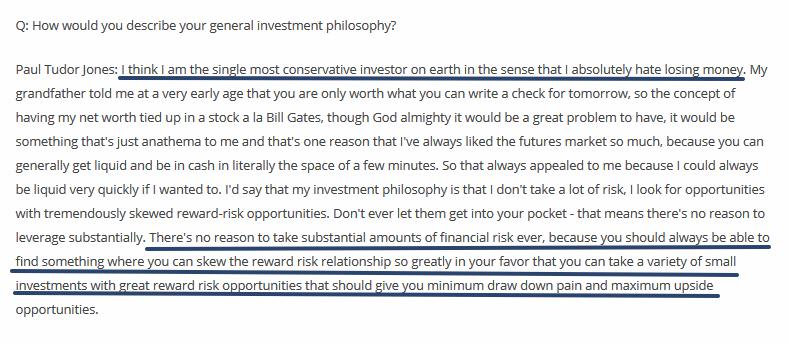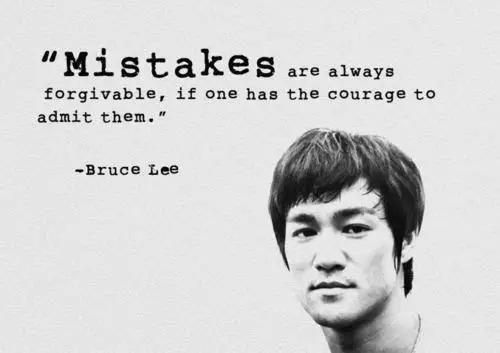Archives of “January 5, 2019” day
rssIf social networks were countries, which would they be?

Traders Can Control Only 2 Things
If you understand that you can only control two things in the stock market, the rest is easy. This understanding simplifies decision-making processes and lightens worry…
Your Cash
You can control the cash you have, whether it’s on-hand or in investments.
Entry & Exit Points or Your Stops
You can control where you get in a stock or where you get out of a stock. You can control where you get in a certain stock at a certain price or where you get out of a stock if it’s falling below.
As a stock is climbing higher and higher, it’s a profit point. It’s a point where you get out.
These are the only two things you can control: your cash and your stops. It makes things easy, doesn’t it?
We can’t control the wave of the market as individual investors. We are not the operators; the operators can control much more. We don’t have billons of dollars to put into one stop to make it move.
Of course you can control where your position is on spreads, but where are you getting in and where are you getting out? Your cash and your stops are in your control.
If you focus and remember the two things you can control, the worry will subside…
Benjamin Graham daughter about his father. Source: The Einstein of Money

No Risk-No Gain
 Trading is ALL about managing risk and probability. The risk part is easy, you can quantify your risk by setting a stop on all your trades. Yes, a stock can gap through your stop overnight, so we can’t know are risk 100% for certain, but setting aside major overnight announcements and earnings, we can get a pretty good idea. The probability part is a little more difficult. I don’t have empirical evidence to support the patterns I trade on both the long and shorts side, other’s have done a decent amount of research, and I have read some, but at the end of the day I have always believed that so called voodoo of technical analysis is a different religion for everyone. Technical analysis, being little more than the study of the psychology of the market, is interpreted by everyone differently, and therefore should not be seen quantitatively to a large extent, but as more of an art. It’s just like a psychologist, you can go to 4 different guys and get 4 different answer to your issues, they will approach you in different ways, ask you different questions, it’s a feel thing.
Trading is ALL about managing risk and probability. The risk part is easy, you can quantify your risk by setting a stop on all your trades. Yes, a stock can gap through your stop overnight, so we can’t know are risk 100% for certain, but setting aside major overnight announcements and earnings, we can get a pretty good idea. The probability part is a little more difficult. I don’t have empirical evidence to support the patterns I trade on both the long and shorts side, other’s have done a decent amount of research, and I have read some, but at the end of the day I have always believed that so called voodoo of technical analysis is a different religion for everyone. Technical analysis, being little more than the study of the psychology of the market, is interpreted by everyone differently, and therefore should not be seen quantitatively to a large extent, but as more of an art. It’s just like a psychologist, you can go to 4 different guys and get 4 different answer to your issues, they will approach you in different ways, ask you different questions, it’s a feel thing.
Anyway, I want to make the point in this post that you’ve got to understand and accept the risk you are putting on when you make a trade. I will review a trade of mine where I made a terrible mistake and foresake this principal, and it has cost me quite a good deal of profits over the last few weeks, especially give that my thesis was correct. It’s not enough to have good ideas, you must execute them properly.
Successful Traders- 5 Characteristics
 * Successful traders trade uniquely – They look at markets differently from consensus. They process different information and they process the same information differently. They have found a way of making sense of markets that makes deep sense to them and that grounds their decision making.
* Successful traders trade uniquely – They look at markets differently from consensus. They process different information and they process the same information differently. They have found a way of making sense of markets that makes deep sense to them and that grounds their decision making.
* Successful traders are multidimensional – They have ways of making money in different markets and in different market conditions. They are flexible; they find ways to win in difficult market conditions.
* Successful traders work at their trading – They work on themselves and they work at markets. When markets are closed, they’re still engaged in their work. Their focus is on self-improvement. They don’t just set goals; they live them.
* Successful traders know when to not trade – They wait for opportunities, they pull back their risk taking when they’re not perceiving opportunity. It’s not that successful traders are always successful. It’s that their success springs from knowing how to not lose when they’re not seeing the ball well.
* Successful traders are self-aware – They know their limitations, and they know what they do well. They are quick to recognize when they’re not “in the zone” and they also recognize when they are seeing unusually good opportunities. They are not afraid to say, “I don’t know”.
Paul Tudor Jones on risk vs. reward: "I think I'm the most conservative investor on earth."

Make the days count

Look What Bruce Lee Saying to Traders

Trading Truth


